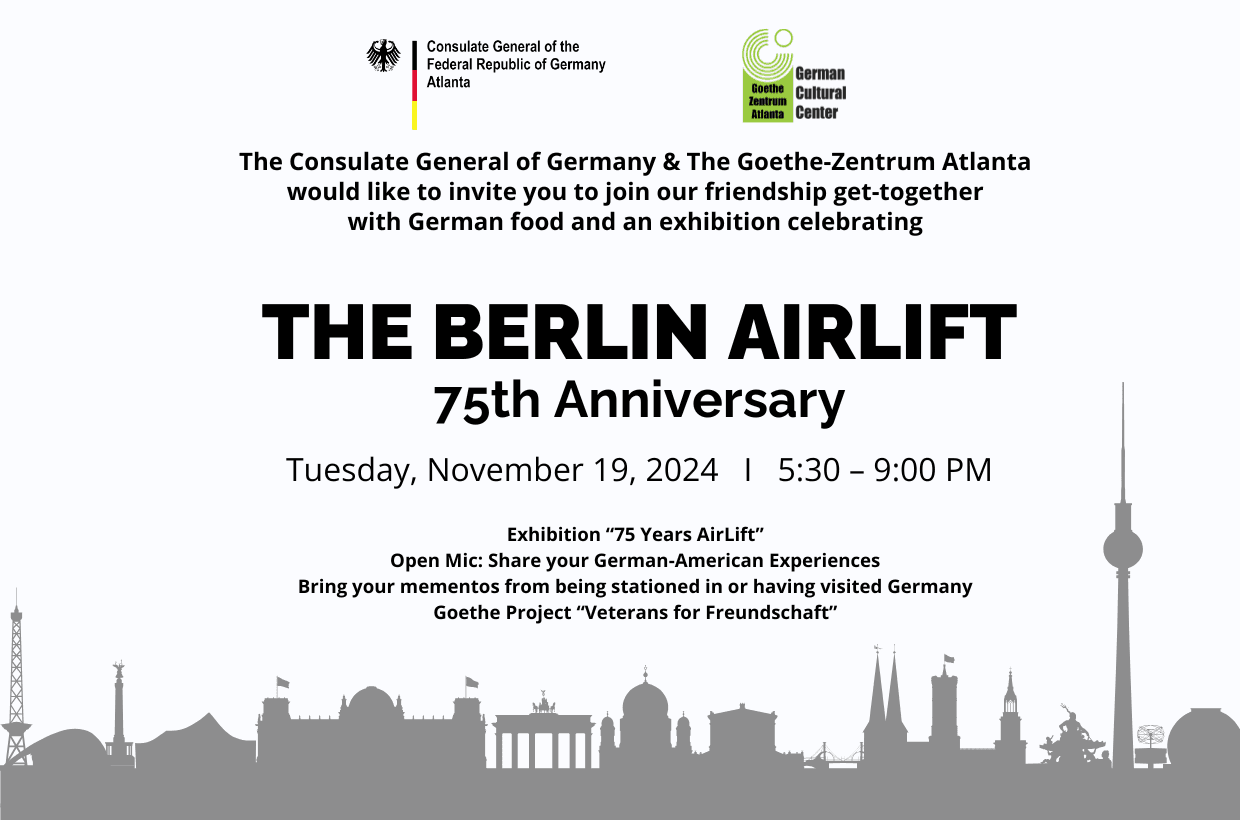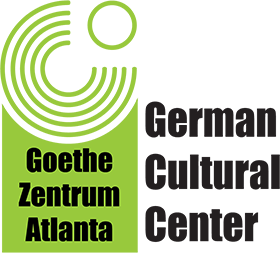Event Calendar
Commemorate 75. Anniversary Berlin Airlift & Share Veteran Memories

The Consulate General of Germany in Atlanta and the Goethe-Zentrum Atlanta invite to join our friendship get-together with German food and an exhibition celebrating
+++++ 75th ANNIVERSARY of the BERLIN AIRLIFT +++++
- visit an exhibit about the Berliner Luftbrücke / Berlin AirLift on the occasion of the 75th anniversary
- bring mementos from being stationed in or having visited Germany to share with fellow Germany enthusiasts
- Open Mic to Share German-American Experiences, stories and memories
- enjoy a catered dinner
- introduction of the brand-new GoetheATL project “Veterans for Freundschaft”
____________________________________________________________________
SEATS ARE LIMITED. Please RSVP to let us know you are coming.
(Look for the "RSVP here" button near the top right of this page.)
____________________________________________________________________
Historical Background:
The Berlin Blockade (24 June 1948 – 12 May 1949) was one of the first major international crises of the Cold War. During the multinational occupation of post–World War II Germany, the Soviet Union blocked the Western Allies' railway, road, and canal access to the sectors of Berlin under Western control. The Soviets offered to drop the blockade if the Western Allies withdrew the newly introduced Deutsche Mark from West Berlin.
The Western Allies organized the Berlin Airlift (German: Berliner Luftbrücke, lit. "Berlin Air Bridge") from 26 June 1948 to 30 September 1949 to carry supplies to the people of West Berlin, a difficult feat given the size of the city and the population. American and British air forces flew over Berlin more than 250,000 times, dropping necessities such as fuel and food, with the original plan being to lift 3,475 tons[clarification needed] of supplies daily.[citation needed] By the spring of 1949, that number was often met twofold, with the peak daily delivery totaling 12,941 tons. Among these was the work of the later concurrent Operation Little Vittles in which candy-dropping aircraft dubbed "raisin bombers" generated much goodwill among German children.
Having initially concluded there was no way the airlift could work, the Soviets found its continued success an increasing embarrassment. On 12 May 1949, the USSR lifted the blockade of West Berlin, due to economic issues in East Berlin, although for a time the Americans and British continued to supply the city by air as they were worried that the Soviets would resume the blockade and were only trying to disrupt western supply lines. The Berlin Airlift officially ended on 30 September 1949 after fifteen months. The US Air Force had delivered 1,783,573 tons (76.4% of total) and the RAF 541,937 tons (23.3% of total), totaling 2,334,374 tons, nearly two-thirds of which was coal, on 278,228 flights to Berlin.









